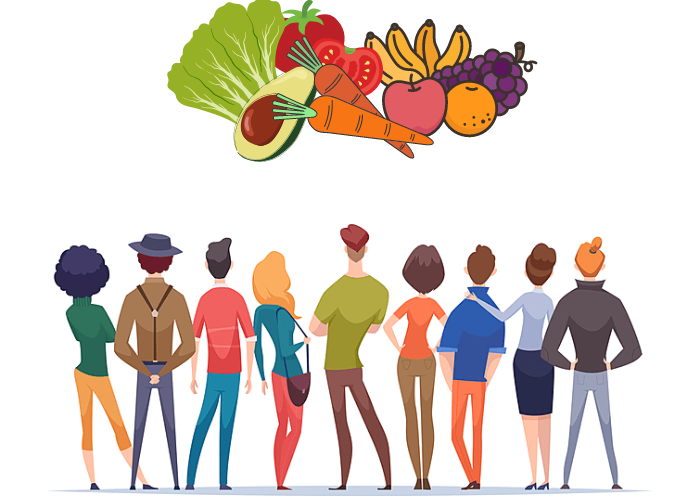God’s dietBY PIETRO PAGANINI
- 11 April 2023
- Posted by: Competere
- Categories: Empowering Consumers, highlights, News, SUSTAINABLE NUTRITION

The urgency to slow down climate change and the need to reduce obesity and improve nutrition are fueling the development of a universal diet – one that is healthy and nature-positive for everyone. But can it really work? Or is it dangerous? The risk is that science becomes a religion, threatening our freedom of choice, inhibiting diversity, and stifling market innovation. However, there are viable alternatives to the so-called “God’s diet”
WHAT IS HAPPENING
THE IPHONIZATION OF NUTRITION
BUT… The iPhone and its peers (few products with real economies of scale) have been able to build effective economies of scale by gaining their success in the market.
PUBLIC POLICIES
The Universal Diet can be easily imposed through public – ideological – policies such as the formulation of colored labels, fiscal incentives and disincentives, ideological (dis)information campaigns, and a more general boycott of certain ingredients.
WHY IS IT IMPORTANT?
- The aim, in fact, is not to save humanity or the Planet but to put individuals in a position to make informed choices in order to live together with each other and with the planet. Public policies in favor of health and sustainability play a crucial role.
- They can favor dietary diversity and free choice. But they can also, for example, through the use of labels or information (ideological and emotional) campaigns, annihilate them to replace them with the universal diet. One fits all.
PROTECT FREEDOM, PROMOTE DIVERSITY
- It threatens freedom of choice: We are imposed with only one diet with the promise that it will improve health and the environment. If we don’t like it, we have to accept it.
- It promotes homogenization and discourages diversity: One fits all. A unique single diet is imposed at the expense of diversity, which is a characteristic of humanity (and not only). Taste and desires of each individual will be replaced by a universal flavor. Local diets are destined to disappear to make way for the Universal Diet.
- It slows down knowledge: The limitation of freedom and diversity slows down comparison and innovation, thus the development and dissemination of knowledge.
- Totalitarian science: It promotes the idea that science is limited to an irrefutable and therefore sacred theory to be praised and not criticized. It is, in fact, a denial of the experimental method of science.
- It discourages investment and innovation: Once the perfect diet is found, we will be discouraged from creating new products, flavors, fragrances, etc.
- The problem is (not) the nutrient: The problem is what we eat. This is not true. As human beings (as seen in living beings in general), we all react differently to nutrients, depending on how we live and our context.
WHAT CAN WE DO?
In the near future, I will address these points individually to demonstrate, with experimented arguments, that the Universal Diet might have positive outcomes, but it is not the only solution to be imposed (as read in the Lancet diet) on humanity. Man will live better and longer if he continues to promote diversity, avoids the ideological use of science, and seeks solutions – such as precision diets – that promote freedom of choice.
